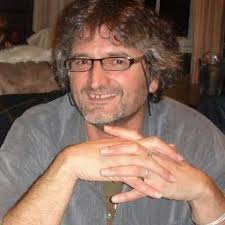Before I begin, I must say I enjoyed your last book Inscription, Diagnosis, Deception and the Mental Health Industry: How Psy Governs Us All. I read passages of the book to a lady from my church. She has been a chemistry teacher for years. Fiercely independent, stoic and extremely gentle, she is now showing signs of forgetfulness.

She often confuses events and forgets events. Reading through the book, she revealed to me that she was ‘locked away for being mad’ by her abusive husband and put on strong psychiatric medication. She describes this as a horrific experience, as the medication played havoc with her mind and body.
I remember her once telling me she still has nightmares of that time and suffered many adverse effects for years. Your book, she claims, helped put things in perspective by talking about experiences she thought were unique to her. For over a year now she has mentioned how free she feels being able to speak about her experiences.
Her only criticism was that the she could not understand some of the technical terms such as Psy complex.
Question 1
You have recently, in conversation with me, challenged my use of the terms ‘mental’ and ‘health’. Could you please elaborate on this further.
The term “mental” is a weasel word. It can mean anything. It is often used in a derogatory sense, as in “That’s just mental” or as praise for someone doing something brave and risky, as in “What a mental outfit.” It is frequently used to describe invisible workings of something called “the mind.” Who knows what “the mind” is – philosophers have been discussing it for a century but you can’t pin it down. So, what happens is people become “experts” in “mental” health; something that means whatever they want it to.
Of course “mental health” is most often used as an expression to describe its counterpart – mental illness. Suddenly we have a whole area open to “expert” interpretation. “Health” is a buzz word. People are told to be “healthy”, given advice on “healthy lifestyles, diet,” and so on. They are being sold several things simultaneously – the idea that health is good, products to increase health and, by implication, the notion they are bad people to be doing unhealthy things. Try living on a dangerous housing estate without eating adulterated food or drinking loads of cheap booze.
Question 2
You challenge assumptions most people think are benign. What would you say to those who point out that mental illness is biological and therefore real?
If “mental” is a construction then “mental illness” can’t be real. Suffering is real, hurt is real, acting in ways that hurt yourself or ones who you love and love you are all real. All of these things are, to an extent, biological as we are biological beings, but what defines them as “illness” is the fact people can’t stand these things, especially people we live with or doctors trained to see suffering rather than survival.
Question 3
We often have readers who point out that medication and ECT have been good for them, and that the critical psychology outlook fails to take their perspectives into consideration. How would you respond to those concerns?
Let us assume a percentage of people say medication helps. So what? Millions have been rendered slaves to medication or permanently harmed by drugs or ECT. How many deaths and how much harm justifies so called psychiatric treatment?
Question 4
While your writing is primarily based in the UK, what message do you have for those doing similar work in the global south?
It depends where you are. Latin America has a strong liberation psychology tradition. I wouldn’t dream of giving them a message. For those in Australia, India and Africa I would ask them to just stop.
Question 5
Tell us more about your new book and what should we expect.
The newest edited book is Teaching Critical Psychology: International perspectives, due in September from Routledge. Being ‘critical’ is determined by ‘the market’. This new book could be sold as a universally applicable (‘international’) conventionally authoritative (‘research-based’ and ‘philosophically coherent’) stand-alone product (‘text’) which might be bought to provide the ‘definitive’ answer to the question of what, and how, critical psychology should be taught. Marketing a book that suggests critical teaching is incoherent and impossible in theory and practice is a very different proposition. But, hey, I am not known to take the easy route.
The new collection has authors from around the world who challenge what and how the Psy enterprise teaches, the mechanical nature of contemporary teaching and how critical it is possible to be in the market-driven education system. Contributors question what it might mean to teach or learn, and explore the ways in which so called teaching is dominated by “targets” and “teaching objectives.” Most contemporary teaching seems to be about feeding people into the world of poorly paid jobs that they have to write fancy CVs to get. My dad used to call us all “cannon fodder.” Not far off nowadays.
By the way, the Psy complex is a term for all things connected to the psychology, psychotherapy and psychiatry industries – everything from university students and researchers to drug company reps, counsellors, clinical psychologists and those that make ECT machines. It’s big.
Craig Newnes is a published author whose work has challenged long held beliefs about mental health. He is ex director of an NHS (UK) Department of Psychological Therapies, employing over 80 Psy staff, and ex Chair of the BPS Psychotherapy Section. He is currently the editor of The Journal of Critical Psychology, Counselling and Psychotherapy. His latest book Teaching Critical Psychology -International Perspectives – will be out in September 2017.
Craig will be at the Asylum conference on 28th June and will be leading a workshop. You can contact him on [email protected] .
